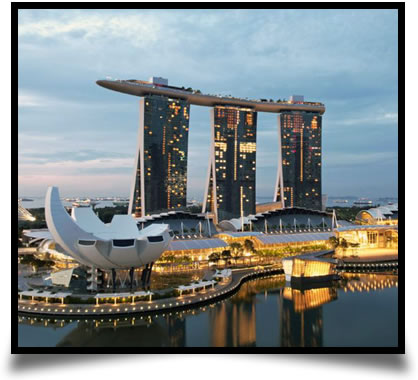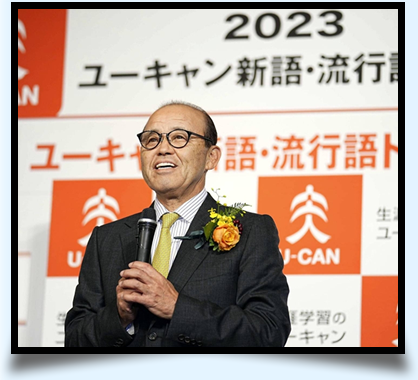World News

Prices in world cities rise 7.4%, as cost-of-living crisis still not over, says report
Prices rose by 7.4% on average over the past year in the world’s major cities, the Economist Intelligence Unit said on Nov. 30, as it warned that the global cost-of-living crisis was not over. The EIU’s Worldwide Cost of Living report is a survey held from Aug. 14 to Sept. 11. The 7.4% rise was for more than 200 commonly used goods and services. It was down from the record-high 8.1% for the previous year. The report also ranks world cities by cost of living.
Singapore and Zurich tied for the world’s most expensive city, followed by Geneva, New York and Hong Kong.
Singapore and Hong Kong are the only Asian cities in the top 10, as Asia still has lower price increases on average compared to other regions, the report said. Osaka fell 27 places to a ranking of 70. Tokyo fell 23 places to 60. They were among the biggest movers down the rankings.
【進出単語】
【日本語訳】世界の「生活費高い都市」、 シンガポールとチューリヒが1位に メキシコの美術館が企画
エコノミスト・インテリジェンス・ユニット(EIU)は11月30日、過去1年間において世界の主要都市で物価が平均して7.4%上昇したことを示し、同時に世界的な生活費危機が終わっていないことを警告した。EIUの世界生活費レポートは8月14日から9月11日まで実施された調査だ。この7.4%の増加は、200以上の一般的に利用される物とサービスを対象とする。前年に過去最高となった8.1%からは低下した。
この報告書は、世界の都市を生活費でランク付けもしている。シンガポールとチューリッヒが世界で最も生活費が高い都市として同率で1位となり、ジュネーブ、ニューヨーク、香港が後に続いた。
アジアの都市で上位10位に入ったのはシンガポールと香港だけで、アジアはそれでも、他の地域に比べて平均して物価上昇率が低かったと、この報告書は伝えている。大阪は27位下降して、70位となった。東京は23位下降して、60位だった。大阪と東京は、順位が大きく下がった都市のうちの2都市だった。
Japan News

ARE crowned 2023 buzzword of the year
The Japan Series was not the only thing the Hanshin Tigers won this year, with “A.R.E.” – based on the Japanese word are, meaning “that” – crowned buzzword of the year, after team manager Akinobu Okada popularized the term as an indirect reference to the pennant.
The team began using are to avoid saying “the Central League title” out loud, afraid it would jinx their chances of winning the league championship.
It later turned into A.R.E., an acronym that become the team’s slogan for the year, standing for Aim, Respect and Empower.
【進出単語】
【日本語訳】流行語大賞、年間大賞に「アレ」
「アレ」で阪神タイガースが今年勝ち取ったのは、日本シリーズだけではない。「アレ」は日本語で「あれ」を意味し今年の流行語大賞となった。これ言葉は、同球団の監督が優勝の言い換えとして言い始め流行らせたものだ。
チームは、「セ・リーグ(セントラルリーグ優勝」と言うことでジンクスにしてしまうことを恐れ、「アレ」という言葉を使い始めた。
その後「アレ」は「A.R.E.」と言い換えられるようになり、「目標、尊敬、エンパワー(力を与えること)」の略語としてスローガンとしてつかわれるようになった。
Business English Expression and Phrases <ビジネス英会話フレーズ>
- Learn expressions such as idioms and slang that is unique to culture, age and business! 新しい英語表現: 文化・時代・ビジネスで使う特有なイディオム表現や俗語を覚えよう!
me-ness
「私らしいところ」Yet in each instance I see that unmistakable me-ness, something apart from my distinguishing physical features, in each portrait.
「それでも、どの写真にも身体的な特徴とは別の、間違いなく私らしいところが見えた」
-nessは形容詞や分詞などにつけ、「性質、状態」などを表す抽象名詞を作る。意味は「~らしさ、~の状態」。例文のme-nessは「私らしさ→私らしいところ」という意味になる。他にも、New York-ness「ニューヨークらしさ」、all at once-ness「たくさんのことが一度に起こる状態」、one-ness「単一性、同一性、調和」、tree-ness「木らしさ、木であること」など多数ある。なお、ハイフンは省略できる。
stoic-faced/-looking
「顔の感情を表さない」In comparison to their more stoic-looking classmates, women smiling brightly reported being more socially connected to others and having more fulfilling lives.
「顔の感情を表さないクラスメートと比べると、明るい笑顔の女性は他者との社会的なつながりを持ち、充実した人生を送っていた」
stoicは「冷静な、平然とした」、-facedは「~の表情をした、~の顔をした」、-lookingは「~のような顔つきの、~のように見える」という意味なので、stoic-faced/-lookingは「顔の感情を表さない」。また、stoicは、Stoic「ストア哲学者」が由来なので、「ストア哲学者のような」という意味の形容詞としても使う。日本語でも「彼はストイックだ」、「ストイックな生活を送る」などと言うが、これは英語の「冷静な、平然とした」という意味ではなく、「(ストア哲学者のような)禁欲主義的な→自分に厳しい」という意味で使われる。
agitate one's every last nerve
「~を非常にいら立たせる」His co-workers agitated his every last nerve.
「同僚たちが彼を非常にいら立たせることだった」
agitateは「扇動する、かきまわす」、every last~は「最後の~までも、~ひとつ残らずすべて」、nerveは「神経」。従って、agitate someone's every last nerveは「~の最後の神経までもかきまわす→~を非常にいら立たせる」という意味になる。似た表現に、get on someone's last nerve「~を非常にいら立たせる、~を完全に我慢の限界に追いやる」がある。例えば、Everything is getting on my last nerve.「何もかもが私をとてもいらいらさせる」のように使う。
TOEIC Grammar Practice
TOEIC Part5の文法を攻略して高得点を狙おう!
Learning Western Cultures and Humors through Jokes!!
Horse
A man walks in through the front door after work… and his wife immediately starts smacking him, left and right across the face, cursing.
“Woah woah woah… what gives?!”, the man says.
The smacking intensifies briefly, and then she let’s up.
“I picked up your coat from the dry cleaners earlier today, and found THIS in the pocket!” his wife exclaims.
She presents a small slip of paper with a woman’s name and some digits on it.
“That?!, Honey it’s the name of a horse I’m betting on this weekend! You are being silly!”
Defeated she apologizes and retreats back to the den.
The next day, the man gets home from work, and low and behold she lunges at him again as he walks through the door, smacking him left and right even more violently than the day before, shouting obscenities he didn’t even know she was capable of.
“Jesus, what did I do this time?!”, the man bellows with his arms guarding his face.
“The HORSE called!”
馬
ある男性が仕事を終えて玄関から入ってくると、男性の妻はすぐに彼の顔を左右にひっぱたき、ののしり始めました。
「うわぁ、うわぁ、うわぁ...どうしたんだ!」と男性は言いました。
妻の威勢は一時的に強くなり、そのご手を止めました。
「今日クリーニング屋さんであなたのコートを受け取ったら、ポケットにこれが入ってたんだけど!」と妻は叫びました。
彼女は女性の名前と数字が書かれた小さな紙をポケットから出しました。
「それかい?ハニー、それは週末に俺が賭ける馬の名前だよ!勘違いだよ!"
打ち負かされて、妻は謝り、書斎に戻っていきました。
翌日、男性が仕事から帰宅すると、妻は玄関から入ってきた男性に再び突進し、前日よりもさらに激しく彼を左右にひっぱたき、妻が知っているとは思いもしなかった強い言葉でののりしました。
"なんてこった、今度は俺が何をしたんだ!"と、男性は両腕で顔をガードしながら怒鳴りました。
"馬から電話があったわよ!"(と妻が言いました。)